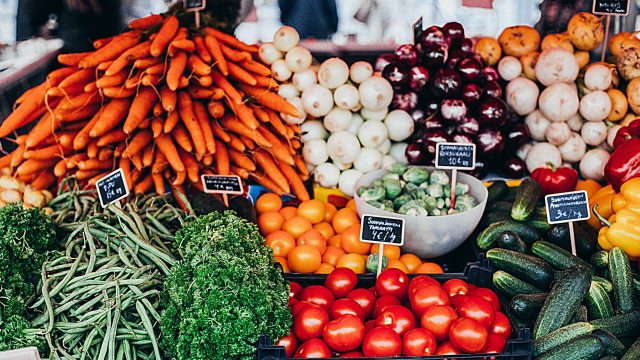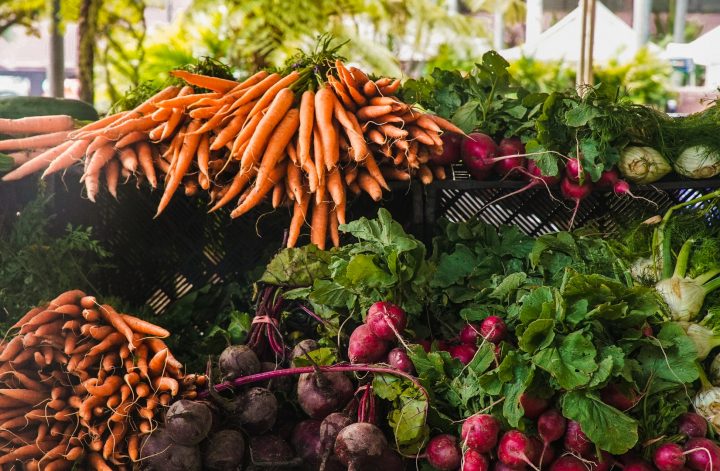The Clark Park Farmers Market, open all year in West Philadelphia, is a favorite place for Njeri Harris to grip and feel the produce she frequently purchases.
At the market, local farmers and food vendors frequently provide their bounty for passersby to smell, taste, and even try. These include fresh fruits, vegetables, flowers, eggs, milk, mushrooms, baked products, and wine made in Pennsylvania.
Harris must now point at what she wants from a distance due to municipal and state laws designed to keep farmers’ markets safer during the coronavirus pandemic.
What sort of vegetables are these? She questioned from a line that had developed six feet away from a vendor’s produce table, “Are they dandelion greens? “May I please have one?”
Farmer markets are no longer active in the region. Crafts, prepared dishes, and samples have all vanished. Hanging out with a pal while meandering from store to store is a thing of the past. Everyone is standing apart, wearing masks, and most of the product is already wrapped. In some markets, you can only purchase if you place an online preorder.
Health experts say farmers’ markets are now among the safest locations to buy food during the epidemic because of the new regulations.
According to Yvonne Michael, an epidemiologist at Drexel University School of Public Health, “there are benefits to going to a farmers market in light of coronavirus in terms of the fact that you’re outside, there’s fresh air flowing, and the supply chain is shorter.”
Michael argued that it is still too early to determine whether farmer’s markets are inherently safer than supermarkets. Farmers’ markets may be riskier than larger grocery shops, but that depends on their adherence to stringent laws, outdoor location, and the fact that food is delivered directly from the grower or producer to the consumer (where there is less handling).
Michael advised people to visit a farmers market while the coronavirus was around because they have numerous positive effects on public health.
Customers and vendors said those advantages are essential in times like these.
“I feel like I get more for my money when I purchase at the farmers market because the stuff is so much fresher and keeps longer in the fridge,” said Harris. I’m now unemployed. This is a wonderful opportunity to get outside, enjoy the fresh air, and show your support for the local farmers.
A regular visitor to Clark Park and registered nurse at Penn Presbyterian Medical Center, Aaron Huntley concurs.
It’s convenient, close to my house, help local farmers, and avoids the bigger supermarkets, according to Huntly. And I choose to shop for food outdoors rather than in a confined area with many other people.
Farmer’s market consumers, according to vendors like Matthew Sicher, who lost 80% of his sales due to the pandemic, have been essential to keeping his family afloat during the crisis. Before it closed in March, his family-run Primordia Mushroom Farm in Lenhartsville, Pennsylvania, sold most of its goods to eateries in New York City and Philadelphia.
The dread of losing the farmer’s markets, he claimed, was the most stressful experience for him and his wife.
Sicher claimed that the new preordering and pre-packaging rules have resulted in much additional work. He claimed that they would set aside five to seven hours on average to prepare for the four or five markets where they typically sell on the weekend. Now, getting ready for each market takes 25 to 27 hours.
So that’s an issue, Sicher said, “especially because we had to let rid of a substantial number of workers.” “However, considering that we have substantial sums of money outstanding in our accounts receivable for restaurants that have since closed, it’s just crucial to have that infusion of cash flow.”
Pete Demchur, an expert goat cheese maker in Honey Brook, Pennsylvania, faces a similar situation. When eateries closed, he lost most of his customers, and he is currently looking for ways to avoid throwing away the milk his goats produce.
It’s challenging since the animals still need to be fed and milked daily, and you must buy hay and feed. It’s quite difficult,” remarked Demchur.
It helps to sell dairy products, eggs, and cheese at the Rittenhouse Farmers Market on Saturdays.
This earns us a little money, he remarked.
Several markets are currently operating in the city, despite most farmers’ markets starting in May.
current shopping locations
Filter Square, Clark Park, and Headhouse are the three-year-round markets maintained by The Food Trust, which was initially a division of the Reading Terminal Market and started operating farmer markets in 1992.
They accept SNAP assistance and provide a $2 voucher for each $5 spent with them. Although their marketplaces will continue to allow direct sales from farmers, some of the sellers are looking into preorder and pre-payment options, and the market is urging customers who can do so to do so.
According to Meghan Filoromo, senior manager of The Food Trust’s Farmers Market Program, “We aren’t going to switch to that because there is a digital gap entirely, not everyone can access the internet, and there isn’t a method to pay with EBT [Pennsylvania benefit card] online.”
Rittenhouse, Bryn Mawr, and Chestnut Hill are the three markets Farm to City now hosts on Saturdays. All sales had to be preordered and pre-paid for before this Saturday. The pre-packaged order could be picked up by one person per household only, according to a timetable based on the family’s last name.
According to the Farmers’ Market Program Manager, Jon Glyn, the food sales have decreased. But we believe placing a preorder with the farmers or bakers and picking up those products within their designated pickup periods is undoubtedly less dangerous.
The market managers decided to permit direct sales this weekend from noon to 2 pm.
“We typically have a lot more merchants and a lot more attendees. We don’t believe this is failing, though, just because we haven’t reached that capacity, added Glyn. We want to provide a service to both the fresh food consumers and the farmers producing it.



